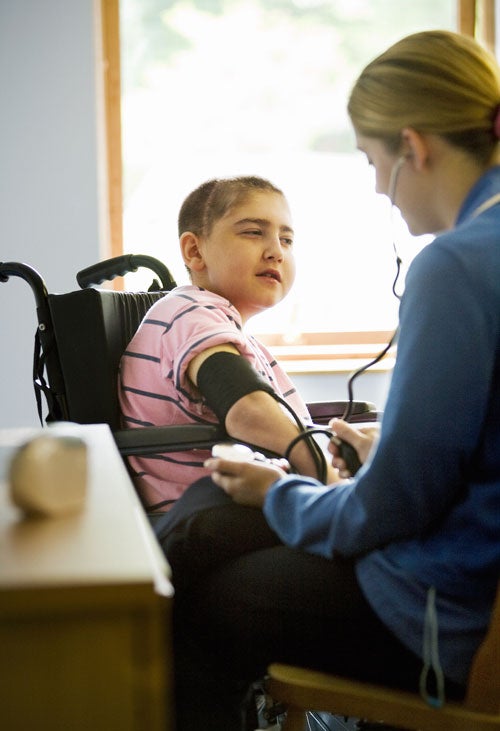Hundreds of child epileptics denied surgical 'cure'
Ill-informed paediatricians are reluctant to refer

Your support helps us to tell the story
From reproductive rights to climate change to Big Tech, The Independent is on the ground when the story is developing. Whether it's investigating the financials of Elon Musk's pro-Trump PAC or producing our latest documentary, 'The A Word', which shines a light on the American women fighting for reproductive rights, we know how important it is to parse out the facts from the messaging.
At such a critical moment in US history, we need reporters on the ground. Your donation allows us to keep sending journalists to speak to both sides of the story.
The Independent is trusted by Americans across the entire political spectrum. And unlike many other quality news outlets, we choose not to lock Americans out of our reporting and analysis with paywalls. We believe quality journalism should be available to everyone, paid for by those who can afford it.
Your support makes all the difference.Ill-informed paediatricians are denying hundreds of children access to surgery that could cure their epilepsy and dramatically improve their quality of life, a leading expert on childhood epilepsy has claimed.
Speaking exclusively to The Independent on Sunday, Professor Helen Cross, the Prince of Wales's Chair of Childhood Epilepsy, said there were an estimated 400 under-18s a year in the UK who should be having surgery for their epilepsy, but that last year only 100 were operated on.
"Taking account of the backlog, plus the 300 children a year missing out, at any one point in the UK there are probably 2,000 kids who could benefit from surgery," she said.
Cross, who is also honorary consultant in paediatric neurology at Great Ormond Street Hospital, said there remained a lack of knowledge and a reluctance to refer among many paediatricians. Although official guidelines state that all children with epilepsy should be reviewed at least annually by a paediatrician with specialist training and expertise, Cross said this was not happening. "People not in the right place to make the decision are deciding that these children are not surgical candidates," she said.
Because epilepsy is not a single condition and has many different underlying causes, how debilitating it is and how well it responds to medication varies widely. While two-thirds of the estimated 60,000 cases of childhood epilepsy in the UK are controlled with drugs, experts believe surgery could be the best option in 5 per cent of cases.
Children with epilepsy can be considered for surgery if they have already tried several anti-epileptic drugs and none have stopped or significantly reduced seizures, and if the physical cause for their epilepsy is found to be in only one area of their brain. However, despite its becoming obvious relatively quickly which children meet these criteria – and despite evidence suggesting the earlier surgery is carried out, the better the developmental outcome – many children are being made to wait for years.
Of those children with epilepsy who do have surgery, just under a third have a multi-lobal procedure or a hemispherectomy (the removal or disconnection of the whole of one side of the brain). The rest are localised procedures to remove smaller brain areas.
If successful, surgery can reduce or eliminate seizures altogether by removing or disconnecting affected parts of the brain. For most children, no rehabilitation is required post-op. But a small number with an acquired progressive problem of one hemisphere end up with a weakness down one side that they didn't have before surgery so require up to 12 weeks' rehabilitation afterwards (see case study).
To address the shortfall of children coming through for surgery, and the shortfall in epilepsy services more generally, the National Centre for Young People with Epilepsy is launching a campaign in the spring to improve services for this group.
"Surgery doesn't replace what wasn't there before," Cross said. "But it restores quality of life because the seizures go away."
James: 'He's now a typical teenager'
When James Scott was seven he developed Rasmussen's encephalitis, involving the progressive inflammation of half of the brain. He was left with severe epilepsy.
In May 2008, James had a brain hemispherectomy at Great Ormond Street to remove the damaged half. He spent 12 weeks at the National Centre for Young People with Epilepsy's rehabilitation centre in Surrey. Now 14, James lives at home and attends mainstream school. Although he is frustrated at still not being able to get out of the bath himself or ride a bike, his recovery has been remarkable. "He's growing up to be a typical teenager," says his mum, Elana Rose. "We're really proud of what he's achieved."
Join our commenting forum
Join thought-provoking conversations, follow other Independent readers and see their replies
Comments